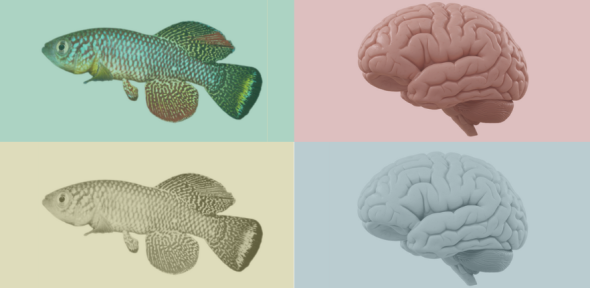
Submitted by Rachel Fellows on Tue, 05/08/2025 - 16:16
Researchers in the Patil Lab at the MRC Toxicology Unit have contributed liquid chromatography mass spectrometry (LC-MS) data to a new study that has mapped changes to killifish brains that occur in ageing. The research, published in Science found that there are problems translating mRNA to protein at the translation elongation stage.
DNA -> mRNA -> Protein. This is the classic pathway that enables our cells to function. However, as we age there is an increasing mismatch between the levels of messenger RNA (mRNA) and proteins. This is known as protein-transcript decoupling and is one of the hallmarks of ageing. Defects in maintaining the level of proteins in our cell, has been linked to neurodegenerative diseases such as Alzheimer's.
In an international collaboration between groups in Europe and the US, researchers used the short lived killifish to identify key mechanisms that lead to brain ageing which are applicable to humans. The ribosome, which passes along the mRNA and assembles the protein, was found to pause more often and slow down the process of protein synthesis. This demonstrated that the speed of translation has a profound impact on protein homeostasis, and could be a key contributor to the protein dysfunction seen in diseases like Alzheimer's.
Authors of this research are based at the Leibniz Institute on Aging - Fritz Lipmann Institute (FLI), Stanford University, Max Planck Institute of Biochemistry, MRC Toxicology Unit, Technical University of Munich, Universitätsmedizin Göttingen, Scuola Normale Superiore and Stazione Zoologica Anton Dohrn.

